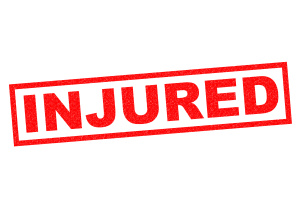 There are many different types of personal injury cases thus the reason personal injury law can involve such a broad range of incidents—everything from car accidents to slip and fall and even premises liability and medical malpractice. How the case proceeds depends on a number of different factors that include the severity of the injuries. The following information provides the steps you need to following before filing a personal injury lawsuit.
There are many different types of personal injury cases thus the reason personal injury law can involve such a broad range of incidents—everything from car accidents to slip and fall and even premises liability and medical malpractice. How the case proceeds depends on a number of different factors that include the severity of the injuries. The following information provides the steps you need to following before filing a personal injury lawsuit.
Is There Insurance Coverage
If you have suffered injuries that may be due to the negligence of another person, you may want to find out whether there is insurance available to cover the cost of your injuries. This information is important because it will determine whether you would even be able to collect any damages that might be awarded by a jury in a personal injury trial. It may seem great when you have a judgment against the party responsible for your injuries, but it’s another story to be able to collect on that judgment. This is especially true when the defendant in the lawsuit lacks insurance coverage and has minimal assets.
If you were not seriously injured and you have your own insurance coverage, it may not be worthwhile to file a lawsuit against a party who lacks insurance. On the other hand if you suffered significant injuries, and it quite clear the other party was responsible you may want to proceed with a lawsuit and let the judge and jury make a decision about financial responsibility.
Deciding whether you should hire an attorney
In the majority of personal injury cases, it’s in your best interest to hire an attorney rather than try to settle the dispute yourself. Certainly if your injuries are not severe you can forego hiring an attorney, but you may want to at least consult with someone who is knowledgeable in personal injury law.
Making a decision whether to sue
In most cases personal injury cases are settled out of court; many are even settled before the need for a lawsuit arises. There are ways to obtain compensation for your injuries without the need to go into court. If the guilty party has insurance coverage you can file a claim against that person’s insurance carrier. There shouldn’t be a need for a lawsuit unless negotiations fail or the insurance company stalls in the settlement process.
